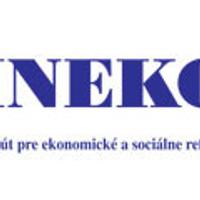Title: Honest Argumentation in Politics? Public Choice Theory vs. Communicative Action
From Szczecin in the Baltic to Trieste in the Adriatic, populism in economic policy has descended across the European continent. After their accession to the European Union in 2004, Central- and Eastern-European countries have virtually stopped their economic reform process. Moreover, populist parties often entered ruling coalitions in the region and degraded public policy discussion by presenting only lowest-order policy arguments to the voter.
To understand this phenomenon, as well as to propose institutional changes helping to curb it, a theoretical explanation of (dis-)honest argumentation in politics would be of help. Hence, the main question addressed in this paper is: which of the existing theories provides the most useful approach towards explaining and (presumably) improving the quality of public policy debate? Which institutions foster more scientific argumentation in politics? Or, is truth seeking in politics incentive-compatible at all?
Classical political theories assumed that democracy assures selection of competent representatives into making collectively binding decisions. This was reflected also in mainstream economic science up to later 20th century, where benevolent public planners were assumed to maximize aggregate welfare. Public choice theory, on the other hand, described ample mechanisms where the opposite is the case. Yet, within the rational choice framework, institutions that mitigate collective action failures can be created. In mechanism design, truthful revelation mechanisms have been studied, for example. New institutional economics embodied in Douglass North, alternatively, emphasises the evolutionary learning mechanism in institutional selection.
German philosopher and social theorist Jürgen Habermas suggests an alternative mode of political behavior in his discourse ethics. Within his ideal framework of communicative rationality, Habermas portrays actors that are not constrained by the strategic preconditions of coercive or market power, but those that cooperatively "overcome their at first subjectively based views in favor of a rationally motivated agreement" by force of the better argument. One of the applications of Habermas might be that whenever a quarrel in the legislative debate or its part can be reduced to solving an empirical question, scientific method should be followed. As a result, final policy decision may not depend on economic misinterpretation of the happenings, but rather on the time preference of the administration in power.






